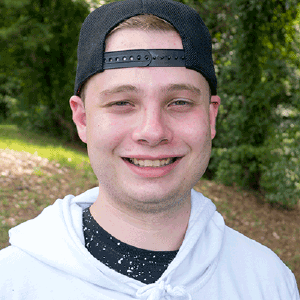Intervention: Does It Really Work?

The idea of “doing an intervention” on a drug addict has gained popularity thanks to television. And as the opioid epidemic wreaks havoc on this country, more families ask themselves this question; does it work? First, there is a lot false information out there. I work firsthand in the field of addiction and substance abuse treatment, so I’m going to give you THE FACTS.
Some of you won’t agree with me. You’ve been told by your own sources the person “has to be ready” or you’ve tried to intervene, and it didn’t work. Maybe someone you know was an addict or loved someone who was, and they’re coaching you based on their own experience and opinion. Or, your loved one has been to drug rehab before and the professionals there advised you of this.
Let me ask you this; did it work?
You’re still reading, so I’m assuming you want answers. This is the truth: INTERVENTION WORKS.
Now, if you read that carefully, it doesn’t say that all styles of intervention are successful, or that all treatment programs produce results. It DOES matter how you do it, and it DOES matter what treatment program they then get into.
The product of a good intervention is the addict agrees to go to treatment, and they go!
Families fail when they are not prepared, or when they try to do one like they “saw on TV”. I strongly suggest hiring a reputable professional interventionist, as they do this for a living and would not be in business if they were mainly unsuccessful.
I have seen, time and time again, people arrive at treatment who are only there because of an intervention. They did not want to stop using drugs and yet they had enough pressure exerted on them that they finally caved-in and agreed to go. And while most people will say “they won’t stay clean”, once in addiction treatment I have seen these same people achieve long-term sobriety and success.
This is not a fluke. In my experience, those who arrive in treatment via intervention do not have a different rate of success than those who arrive on their own willingness. The primary reason for this is once they are off the drugs, the person’s rationality returns, and they discover for themselves they DO want a better life.
So, what do you need to do? First, don’t start with finding an interventionist. You must start with finding a quality treatment program. This is because once they agree, you must IMMEDIATELY get them into treatment before they change their mind. I suggest somewhere remote, so they can’t easily leave or have a “friend” come get them if they are having a tough time in the beginning. There are no “lock-down” substance abuse treatment centers, so it’s also important to choose somewhere with dedicated staff who won’t simply allow the person to quit when the going gets tough.
Next, you need to coordinate with the facility about your plan to do an intervention. High-quality places may even assist you with this process or have their own list of professionals they work with. The last thing you want is to have the addict arrive to check-in and discover the facility is not prepared to deal with them. It takes a special touch to manage someone who is not exactly “ready”.
Finally, you hire the interventionist. You can expect they will want to know EVRYTHING about the situation. They should come and meet with you and prepare a plan. There may be a lot of preparatory work, such as deciding who will be present, where the addict will be and when, etc. If they are good, they will go through all possible scenarios with you and manage the removal of any escape routes that the addict has. This may consist of getting the addict’s phone turned off or getting the people on-board who they would turn to for “help” and getting them to agree to and back up your plan. Then, the intervention is executed, and the person is taken to treatment.
As you can tell, this is not some appeal to the person’s senses. They have none. They’re on drugs and killing themselves. It’s about doing whatever is necessary and effective to save their life. They may kick and scream and refuse to go but if it is done correctly, it will work.
The only real alternative is to just keep waiting… and how’s that been going?


